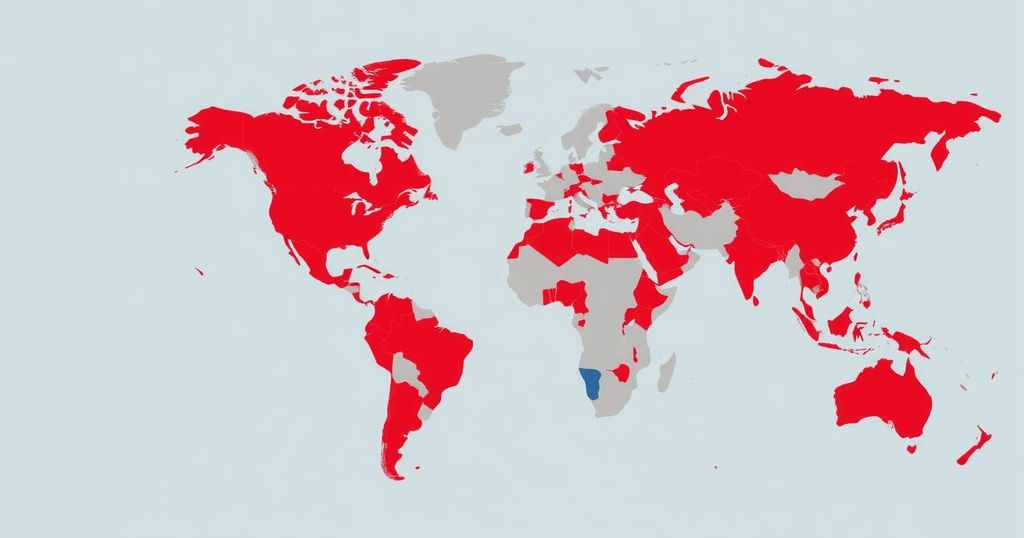Donald Trump may soon implement a travel ban affecting countries like Afghanistan and Pakistan, following an executive order to draft new travel restrictions based on poor vetting. The ban poses risks for thousands of Afghans seeking resettlement after assisting U.S. military efforts. The legal history of Trump’s travel bans underscores the complexities and implications of such policies.
Former President Donald Trump appears to be considering the reimplementation of a travel ban affecting various countries, including Afghanistan and Pakistan, as early as next week. This directive follows an executive order Trump issued on January 20, which instructed his cabinet members to compile a list of nations facing potential full or partial travel restrictions due to insufficient vetting and screening processes.
Trump’s commitment to “restore the travel ban” on the first day of his presidency was not fulfilled previously. During his first term, he enacted bans targeting several majority-Muslim nations, a policy ultimately upheld by the Supreme Court in 2018, which affected approximately seven percent of the global population. According to recent reports, the list of countries could feature nations such as Cuba, Iran, Libya, North Korea, Somalia, Sudan, Syria, Venezuela, and Yemen alongside Afghanistan and Pakistan.
The anticipated ban could have significant implications for the thousands of Afghans who have applied for Special Immigrant Visas after aiding U.S. troops throughout their two-decade involvement in Afghanistan. Currently, around 200,000 Afghans await resettlement or the approval of their visa applications, crucial for their safety from Taliban retribution.
While the State Department might seek exemptions for Afghan applicants, the likelihood of approval remains uncertain. The coalition AfghanEvac has urged Afghan nationals to act quickly, stating, “If you have a valid U.S. visa in your passport or travel document, you should make travel arrangements immediately,” as a ban may be announced soon.
The history of Trump’s travel bans highlights a contentious legal battle. His first travel ban was enacted in January 2017, prohibiting entry for travelers from seven Muslim-majority countries, which faced immediate legal challenges. Subsequent versions were modified to exclude certain groups and were ultimately upheld by the Supreme Court in 2018. The ban remained in effect until 2021 when President Joe Biden reversed it.
In summary, Donald Trump is reportedly planning to revive a travel ban affecting significant countries, including Afghanistan and Pakistan. This initiative may disrupt the lives of many Afghans who are in the process of navigating immigration due to their prior assistance to U.S. forces. The complexities surrounding travel bans have a documented history involving extensive legal challenges and eventual policy changes. As developments unfold, greater clarity on the specific implications of the potential ban remains critical.
Original Source: www.independent.co.uk






